第14章 THE SECOND(11)
I suppose one might have persuaded oneself that all this was but the replacement of an ancient tranquillity, or at least an ancient balance, by a new order.Only to my eyes, quickened by my father's intimations, it was manifestly no order at all.It was a multitude of incoordinated fresh starts, each more sweeping and destructive than the last, and none of them ever really worked out to a ripe and satisfactory completion.Each left a legacy of products, houses, humanity, or what not, in its wake.It was a sort of progress that had bolted; it was change out of hand, and going at an unprecedented pace nowhere in particular.
No, the Victorian epoch was not the dawn of a new era; it was a hasty, trial experiment, a gigantic experiment of the most slovenly and wasteful kind.I suppose it was necessary; I suppose all things are necessary.I suppose that before men will discipline themselves to learn and plan, they must first see in a hundred convincing forms the folly and muddle that come from headlong, aimless and haphazard methods.The nineteenth century was an age of demonstrations, some of them very impressive demonstrations, of the powers that have come to mankind, but of permanent achievement, what will our descendants cherish? It is hard to estimate what grains of precious metal may not be found in a mud torrent of human production on so large a scale, but will any one, a hundred years from now, consent to live in the houses the Victorians built, travel by their roads or railways, value the furnishings they made to live among or esteem, except for curious or historical reasons, their prevalent art and the clipped and limited literature that satisfied their souls?
That age which bore me was indeed a world full of restricted and undisciplined people, overtaken by power, by possessions and great new freedoms, and unable to make any civilised use of them whatever;stricken now by this idea and now by that, tempted first by one possession and then another to ill-considered attempts; it was my father's exploitahon of his villa gardens on the wholesale level.
The whole of Bromstead as I remember it, and as I saw it last--it is a year ago now--is a dull useless boiling-up of human activities, an immense clustering of futilities.It is as unfinished as ever; the builders' roads still run out and end in mid-field in their old fashion; the various enterprises jumble in the same hopeless contradiction, if anything intensified.Pretentious villas jostle slums, and public-house and tin tabernacle glower at one another across the cat-haunted lot that intervenes.Roper's meadows are now quite frankly a slum; back doors and sculleries gape towards the railway, their yards are hung with tattered washing unashamed; and there seem to be more boards by the railway every time I pass, advertising pills and pickles, tonics and condiments, and suchlike solicitudes of a people with no natural health nor appetite left in them....
Well, we have to do better.Failure is not failure nor waste wasted if it sweeps away illusion and lights the road to a plan.
6
Chaotic indiscipline, ill-adjusted effort, spasmodic aims, these give the quality of all my Bromstead memories.The crowning one of them all rises to desolating tragedy.I remember now the wan spring sunshine of that Sunday morning, the stiff feeling of best clothes and aggressive cleanliness and formality, when I and my mother returned from church to find my father dead.He had been pruning the grape vine.He had never had a ladder long enough to reach the sill of the third-floor windows--at house-painting times he had borrowed one from the plumber who mixed his paint--and he had in his own happy-go-lucky way contrived a combination of the garden fruit ladder with a battered kitchen table that served all sorts of odd purposes in an outhouse.He had stayed up this arrangement by means of the garden roller, and the roller had at the critical moment--rolled.He was lying close by the garden door with his head queerly bent back against a broken and twisted rainwater pipe, an expression of pacific contentment on his face, a bamboo curtain rod with a tableknife tied to end of it, still gripped in his hand.We had been rapping for some time at the front door unable to make him hear, and then we came round by the door in the side trellis into the garden and so discovered him.
"Arthur!" I remember my mother crying with the strangest break in her voice, "What are you doing there? Arthur! And--SUNDAY!"I was coming behind her, musing remotely, when the quality of her voice roused me.She stood as if she could not go near him.He had always puzzled her so, he and his ways, and this seemed only another enigma.Then the truth dawned on her, she shrieked as if afraid of him, ran a dozen steps back towards the trellis door and stopped and clasped her ineffectual gloved hands, leaving me staring blankly, too astonished for feeling, at the carelessly flung limbs.
The same idea came to me also.I ran to her."Mother!" I cried, pale to the depths of my spirit, "IS HE DEAD?"I had been thinking two minutes before of the cold fruit pie that glorified our Sunday dinner-table, and how I might perhaps get into the tree at the end of the garden to read in the afternoon.Now an immense fact had come down like a curtain and blotted out all my childish world.My father was lying dead before my eyes.... Iperceived that my mother was helpless and that things must he done.
"Mother!" I said, "we must get Doctor Beaseley,--and carry him indoors."